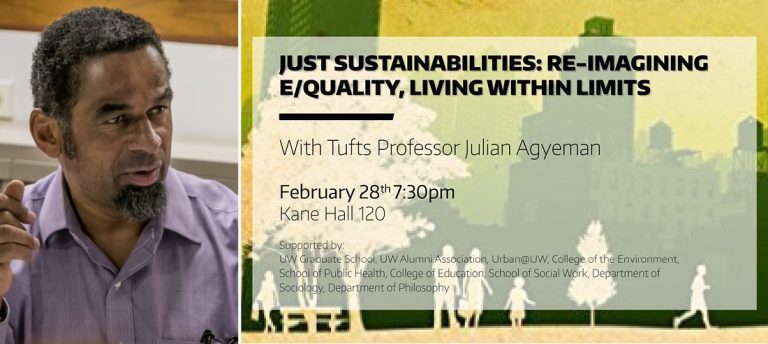Published on February 22, 2017

Julian Agyeman, Professor of Urban and Environmental Policy and Planning at Tufts University, will be delivering a talk at the University of Washington on February 28 at 7:30pm. Agyeman was originally trained as an ecologist and biogeographer before turning to critical urban studies and environmental social science. Agyeman’s scholarship challenges basic notions of sustainability through his concept of ‘just sustainabilities,’ which aims to enhance equity and justice for both humans and ecosystems, now and into the future. In anticipation of his visit, Urban@UW has compiled a brief reading list.
Julian Agyeman and Duncan McLaren challenge the notion that connectivity, apps, and sensors mean enhanced livability for everyone by indicating they can also risk sidestepping inclusive politics. Agyeman and McLaren argue that truly smart cities need to use technology that bolsters possibilities for political participation, sharing, and inclusion, instead of market driven solutions that threaten urban equity.
Global environmental justice or Le droit au monde?
Agyeman traces the evolution of and responses to the term environmental justice across international lines in response to differing racial, social, and classist circumstances surrounding inequalities. Agyeman posits that environmental justice is increasingly becoming a human rights issue rather than an American-centric civil rights issue
Moving the Field of Food Justice Forward Through the Lens of Urban Political Ecology
The emergence of food justice has had profound implications for both theory and activism. Food justice’s aspirations for going local in order to challenge the inequities of large-scale agri-business can unfortunately create its own fields of exclusion through high craft, expensive, local food items or cultivate a culture around local food that is available only to those with the financial means. Agyeman and Jesse McEntee argue that urban political ecology can offer a lens to critically focus on possibilities for retooling approaches to the food justice problem.
Compiled by Andrew Prindle & Urban@UW.